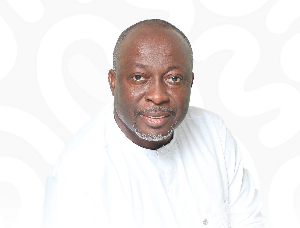Deputy Energy Minister, Dr. Mohammed Amin Adam, has expressed surprise at the National Democratic Congress’ (NDC) promise to increase power generation capacity when voted for in the December polls.
Dr. Amin says the country is currently already battling with the problem of excess power capacity generated by the NDC, hence the need for methods to resolve the problem.
“The NDC, our friends are making a new promise on expanding capacity. One of the major challenges in the energy sector now is the issue of excess capacity, and so I was expecting that they will tell Ghanaians how they intend addressing the excess capacity; a problem which was created by them actually.”
Speaking on JoyNews’ PM Express, the Minister said the erstwhile NDC government’s quest to solve dumsor saw it signed a number of Power Purchase Agreements (PPA) that required independent power producers to generate power for the country.
“They signed several power purchase agreements; at the last count 42 power purchase agreements that require different power companies to put up power plants to generate power.”
These, according to him, were “done without recourse to competitive bidding processes” and these PPAs have been executed even though Ghana does not need that much power.
This has led to the production of approximately 5,000 megawatts (MW) of electricity, when the country consumes only 2,400 MW at its peak, leaving an excess margin of over 1500 MW.
“And so you have almost 2,000 MW of generation capacity that is not needed. Even if you take away what we call reserve margin, the reserve margin by international standards should be between 20 – 25% of your total installed capacity. You are still going to be saddled with almost 1000 to 1,500 MW of power that is not needed,” he said.
The deputy energy minister added that the excess power generated costs the country approximately half a billion United States dollars annually even though the country does not need it.
“It is not just power that is not needed, but power that we have to pay for, even though we have no need for that power. Today what we have is excess capacity charges that Ghana has to pay”.
This predicament of paying excess capacity charges, he explained, is as a result of the nature of the ‘take or pay’ PPA contracts that the NDC signed in an attempt to resolve the power crisis.
The Minister further added that this cost had added to the country’s debt profile. Unfortunately, government cannot charge the excess capacity on tariffs, otherwise, it will lead to a 300% increment in charges, thus the government of Ghana has to find alternative ways to solve the issue.
Business News of Thursday, 17 September 2020
Source: www.ghanaweb.com
Expanding power capacity needless – Deputy Energy Minister to NDC
Entertainment












